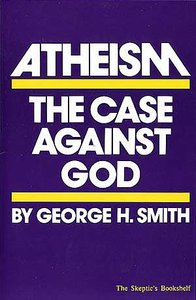Last week I posted Eric Voegelin’s “Theoretical Inquiry into Romans 13,” which exposes the weaponization of the Apostle Paul’s words in the service of the state, even Hitler’s, making every scoundrel with executive authority an ordained minister. After reading it, libertarian scholar Gerard N. Casey brought to my attention other alternative interpretations of Romans 13:1-7, readings that regard the “powers that be” to be, not “civil,” but rather ecclesial or spiritual. Those views pass in review in Casey’s magisterial Freedom’s Progress?: A History of Political Thought, which I unreservedly recommend to my visitors, especially (for its relevance to our topic) pages 198-209.
Today I share with you yet another view, one I discovered forty years ago, but only now am willing to own. It’s from the pen of the late Otis Q. Sellers (1901-1992), whose life I’m researching for a biography. Today happens to be his birthday.—Anthony G. Flood
The Powers That Be

“Let every soul be subject unto the higher powers.” This is Paul’s positive declaration recorded in Romans 13:1, and there is no verse in Scripture that has been misapplied more than this one. In all church theology “the higher powers” are made to be the civil authorities, whoever they may be in any country and at any time. And it needs to be said that of all the absurd interpretations ever made by theologians, this one takes first prize. It is unworkable and unbelievable, and it cannot be followed out through the additional statements that follow this declaration.
Continue reading “Romans 13: another contrarian interpretation”

 And now, in concluding this investigation on the Evangelical side, a theoretical inquiry into Romans 13 for the Evangelical part, and then for the Catholic part an inquiry into the theological idea of the corpus mysticum Christi, so that the decadence I have repeatedly spoken of will come to light.
And now, in concluding this investigation on the Evangelical side, a theoretical inquiry into Romans 13 for the Evangelical part, and then for the Catholic part an inquiry into the theological idea of the corpus mysticum Christi, so that the decadence I have repeatedly spoken of will come to light. Since the
Since the 